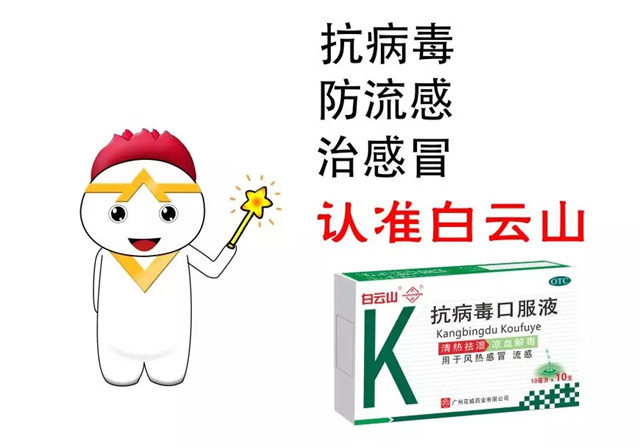How to prevent and treat influenza during this winter flu season?
2019-12-26 14:44:33 GPHL GPHL
According to the latest Chinese Influenza Weekly Report released by the Chinese National Influenza Center, during week 50 (December 9th-14th, 2019), influenza activity continued to increase, some provinces had entered the epidemic season, with influenza A (H3N2) viruses predominant in Chinese mainland, and B-Victoria viruses in several provinces of southern China.
How to tell whether it’s a cold or the flu?
Flu is different from a cold. Flu usually comes on suddenly. People who have flu often feel some or all of these symptoms: high fever with body temperature over 39℃-40℃, fear of cold or chills, headache, whole-body muscular soreness, extremely weak, loss of appetite, coughing, sore throat, runny or stuffy nose.
A few people experience nausea, vomiting, and diarrhea. Children tend to display more of these digestive tract symptoms than adults. Infants’ clinical symptoms are usually atypical.

Advice on preventing and treating flu
Residents, especially young children, are advised to take precautions to protect themselves against flu viruses.
The best way to prevent flu is by getting a flu vaccine each year. Frequent hand washing can reduce the risk of viral spread. Wearing a surgical mask is also useful.
Parents are advised to ventilate their dwellings every day and avoid taking their kids to crowded places. They are advised to give their children temperature-reducing medicine (such as paracetamol) if their child’s body temperature is above 38.5℃. They should wear a mask when going to the hospital.
Children should try to avoid close contact with sick people. They should avoid touching their eyes, nose and mouth and wash their hands with soap and water after being in contact with people with flu symptoms.
If people are sick with flu symptoms, they should get plenty of sleep, keep hydrated and cover their nose and mouth with a tissue when they cough or sneeze. They should see a doctor if symptoms persist.
Doctors warn that severe cases of flu can lead to death, however, and shouldn’t be taken lightly. Severe cases, which may lead to central nervous system damage, have been increasing in Guangzhou this year. If your child has a persistent high temperature (fever), or displays any extreme symptoms such as convulsions, you must take him/her to see a doctor immediately.
According to the ‘Expert consensus statement on the diagnosis and treatment of influenza for children 2018’, antiviral therapy should be given within 48 hours of symptoms first manifesting, which will reduce the risk of further complications.

Author: Monica Liu
Editor: Simon Haywood

